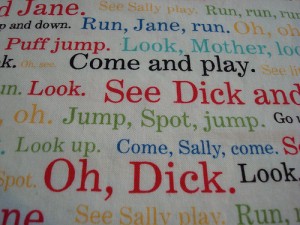What Florida Data Say About The Effect Teachers Have On Math And Reading
The New York Times takes a look at why teachers have a tougher time improving reading performance than math performance.
In part, it’s because math lessons are more discrete. A quiz can tell you which math concepts a student is having problems with, as a teacher notes in the story.
But reading builds on many skills — vocabulary, grammar, contextual knowledge — and it is difficult to pinpoint just which one is the trouble spot. Reading deficiency may be more of a problem than math deficiency long term, educators say.
Data from Florida’s first round of statewide teacher evaluation data helps put a finer point on the difference.
The Florida Comprehensive Assessment Test math scores of students with teachers earning the highest rating — “highly effective” — improved by 19.1 percent more than they would with an average-rated teacher, according to a Florida Department of Education analysis. The FCAT reading scores of students with “highly effective”-rated teachers improved by 7.8 percent more than they would with an average-rated teacher.
The reverse was also true: Students with the lowest-rated reading teachers saw their scores decline by a smaller percentage than students with the lowest-rated math teachers. Again, those percentages are compared to the gains produced by an average-rated teacher.
Florida student math scores on the National Assessment of Educational Progress are also improving more quickly than reading scores.
The average Florida fourth grade math score on the exam increased by 26 points between 1992 and 2011, while the average fourth grade reading score improved by 17 points during the same period. A 10-point improvement on the exam is considered the equivalent of one grade level.
For eighth graders, the average math score increased by 6 points between 2003 and 2011. The average reading score increased by 5 points during the same period.
But when it comes to students entering Florida’s community college system, math is clearly a bigger problem.
More than twice as many Florida college students were required to take a remedial math course than reading course during the 2010-2011 school year, as we reported in our 13th Grade series on remedial education.
Of those entering college directly from high school, 44 percent failed the math section of the college placement exam. Less than one-third of students failed the reading or writing placement exams.



